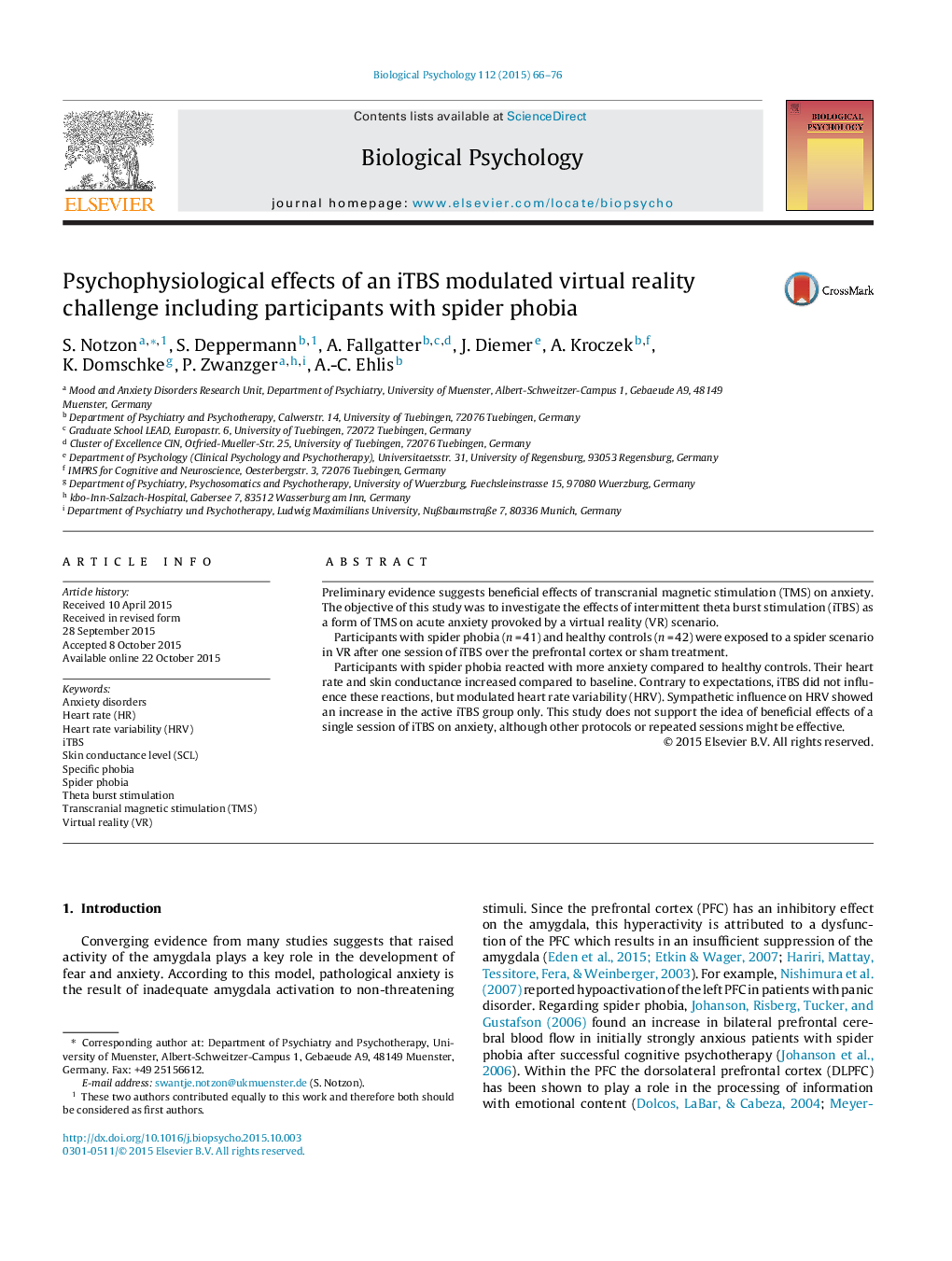| Article ID | Journal | Published Year | Pages | File Type |
|---|---|---|---|---|
| 920778 | Biological Psychology | 2015 | 11 Pages |
•A virtual reality spider challenge led to anxiety and disgust in a phobic group.•It led to elevated heart rate (HR) and skin conductance level (SCL) in this group.•We found no general effect of iTBS on anxiety, disgust, HR and SCL.•ITBS modulated heart rate variability during the spider scene.
Preliminary evidence suggests beneficial effects of transcranial magnetic stimulation (TMS) on anxiety. The objective of this study was to investigate the effects of intermittent theta burst stimulation (iTBS) as a form of TMS on acute anxiety provoked by a virtual reality (VR) scenario.Participants with spider phobia (n = 41) and healthy controls (n = 42) were exposed to a spider scenario in VR after one session of iTBS over the prefrontal cortex or sham treatment.Participants with spider phobia reacted with more anxiety compared to healthy controls. Their heart rate and skin conductance increased compared to baseline. Contrary to expectations, iTBS did not influence these reactions, but modulated heart rate variability (HRV). Sympathetic influence on HRV showed an increase in the active iTBS group only. This study does not support the idea of beneficial effects of a single session of iTBS on anxiety, although other protocols or repeated sessions might be effective.
